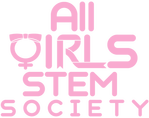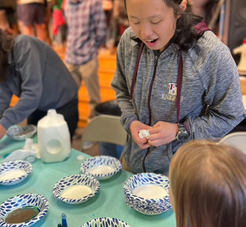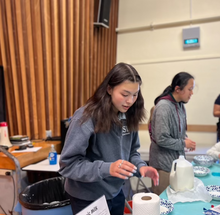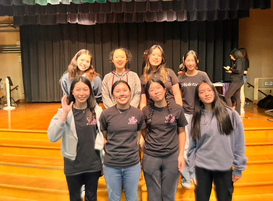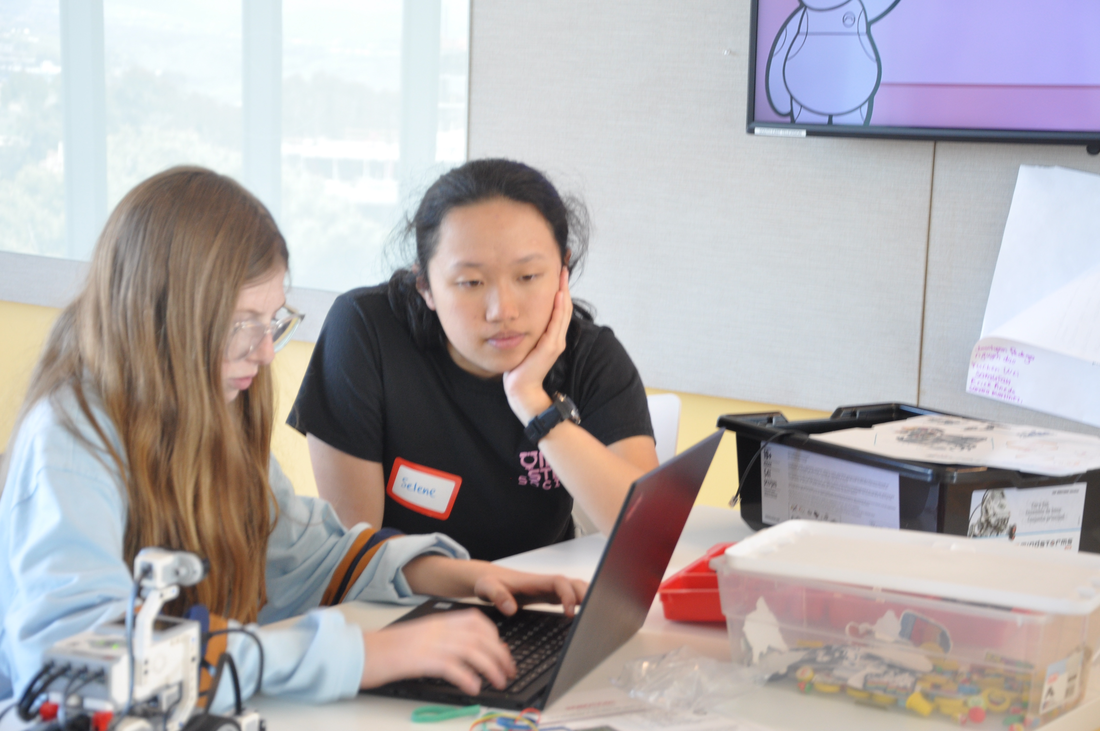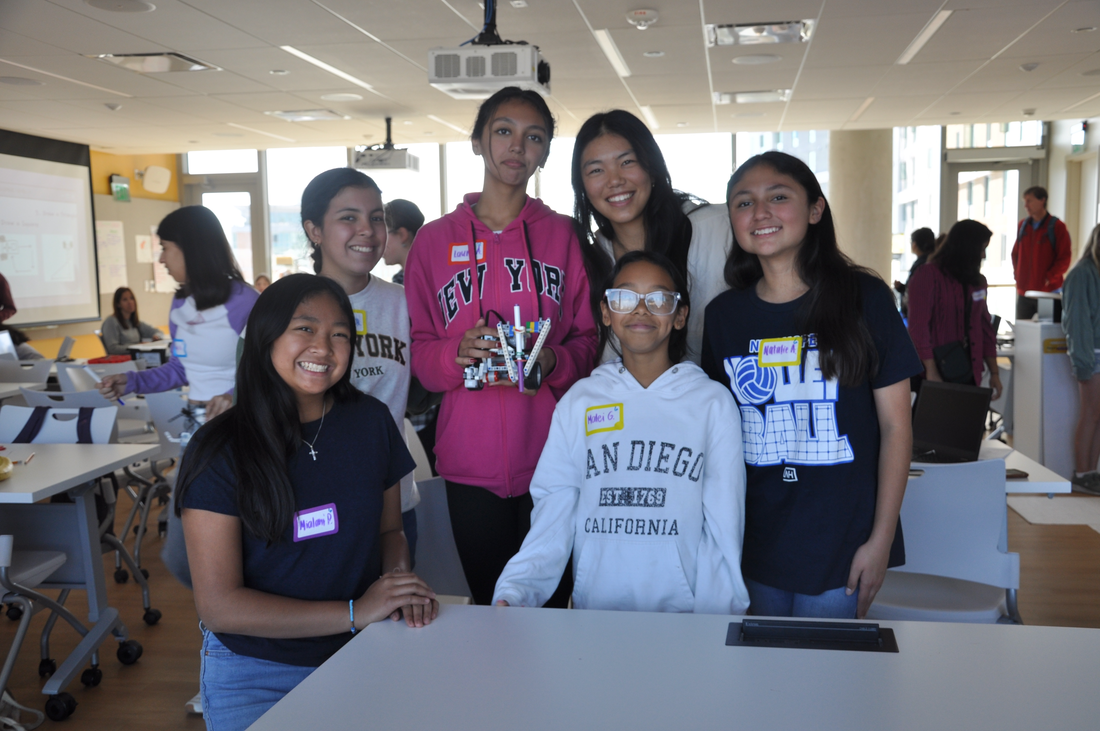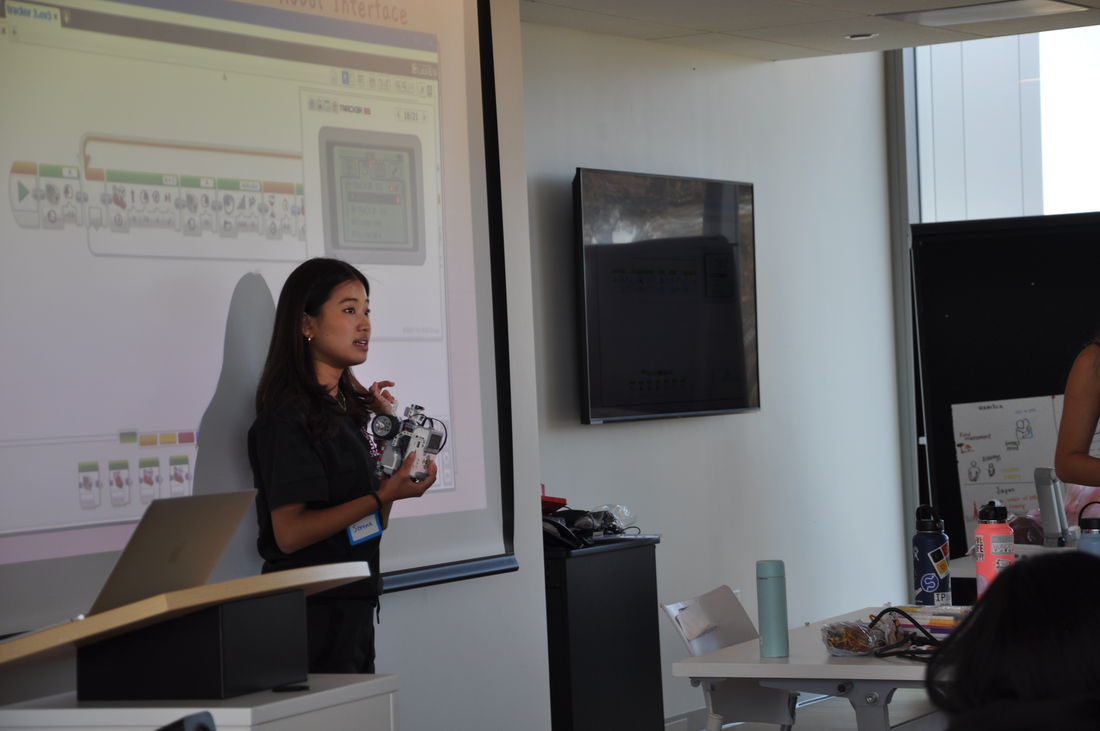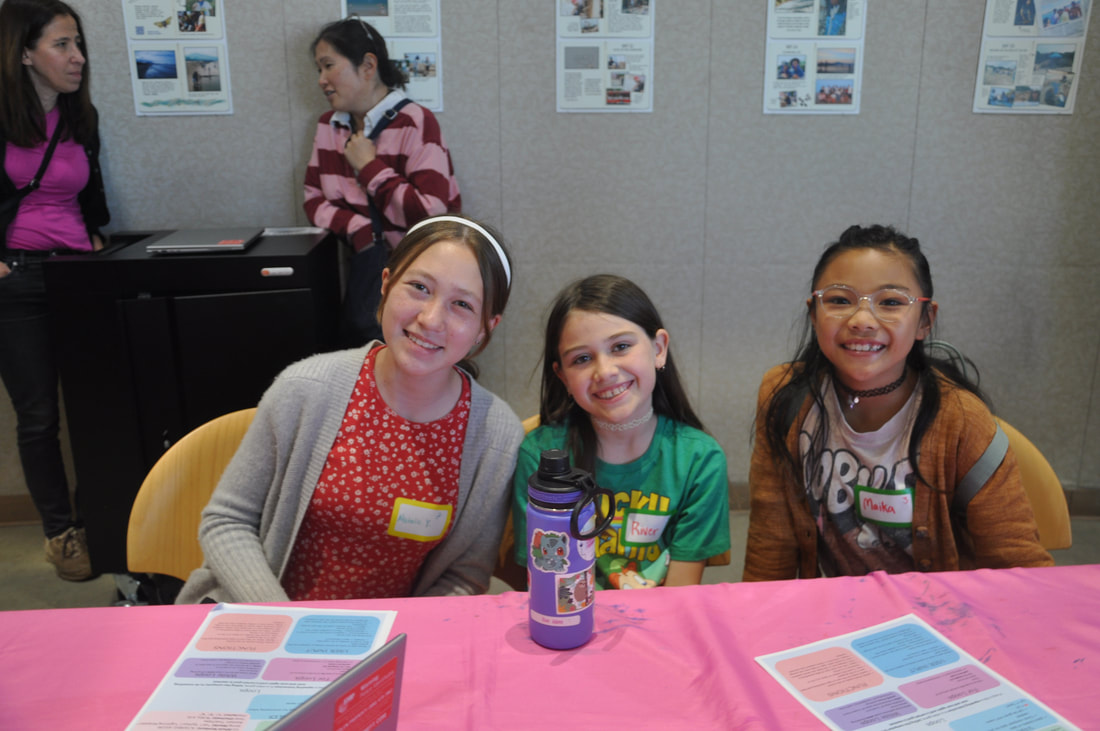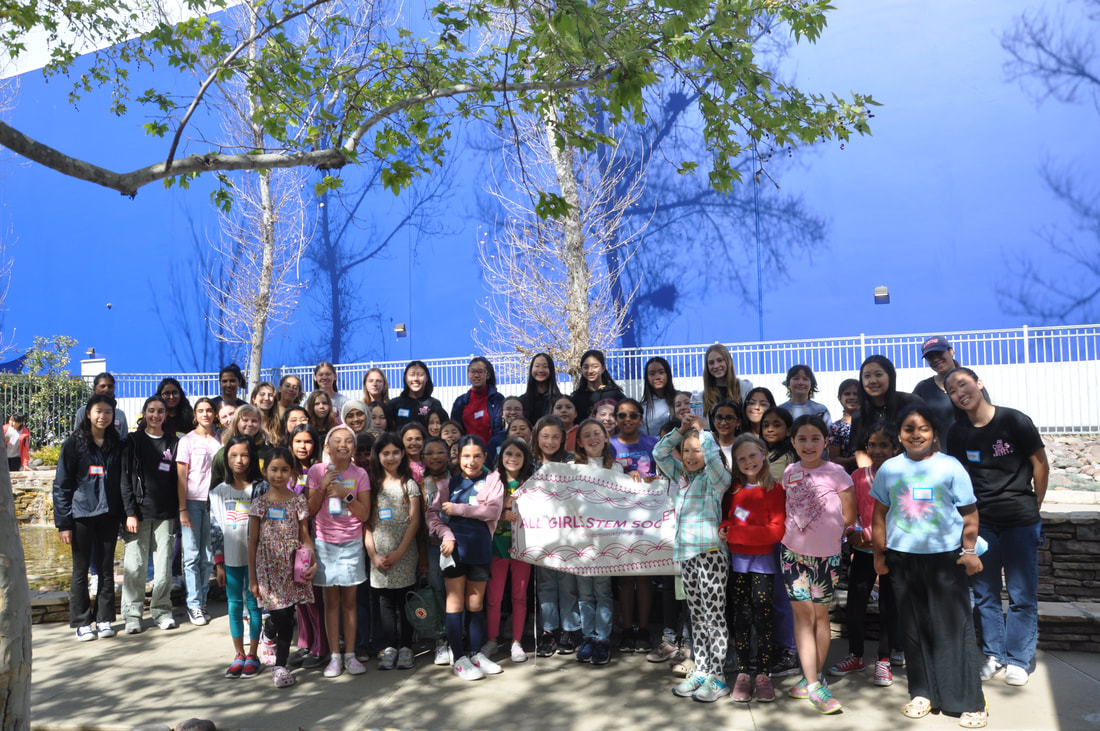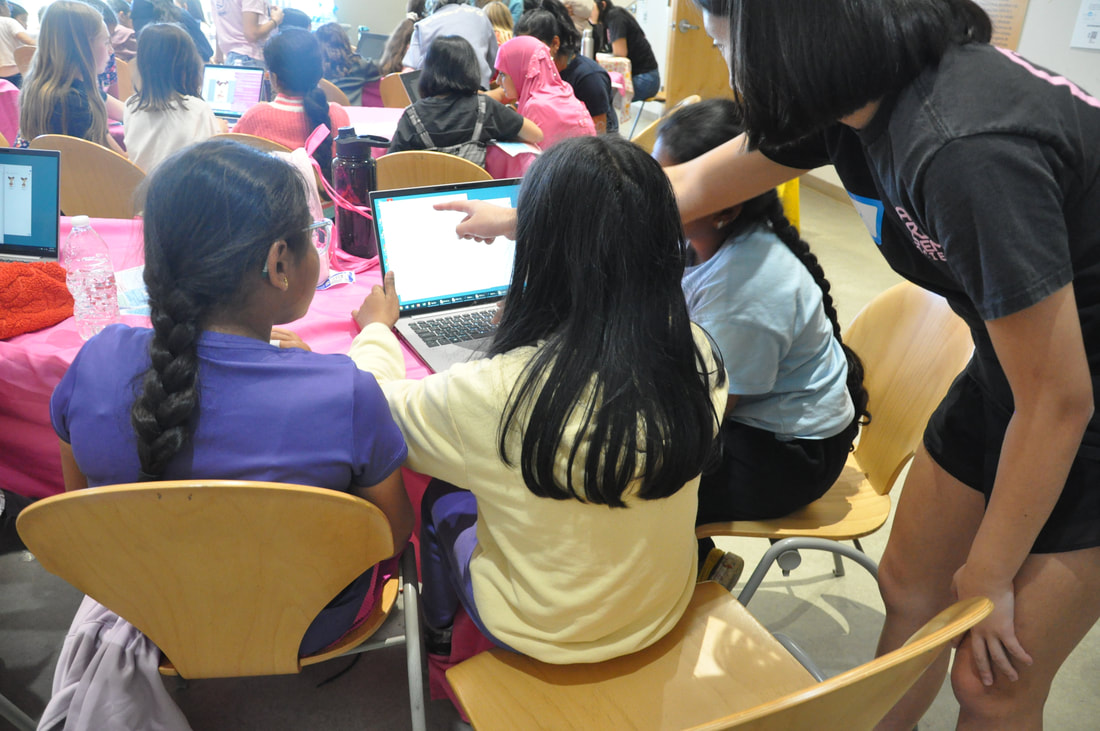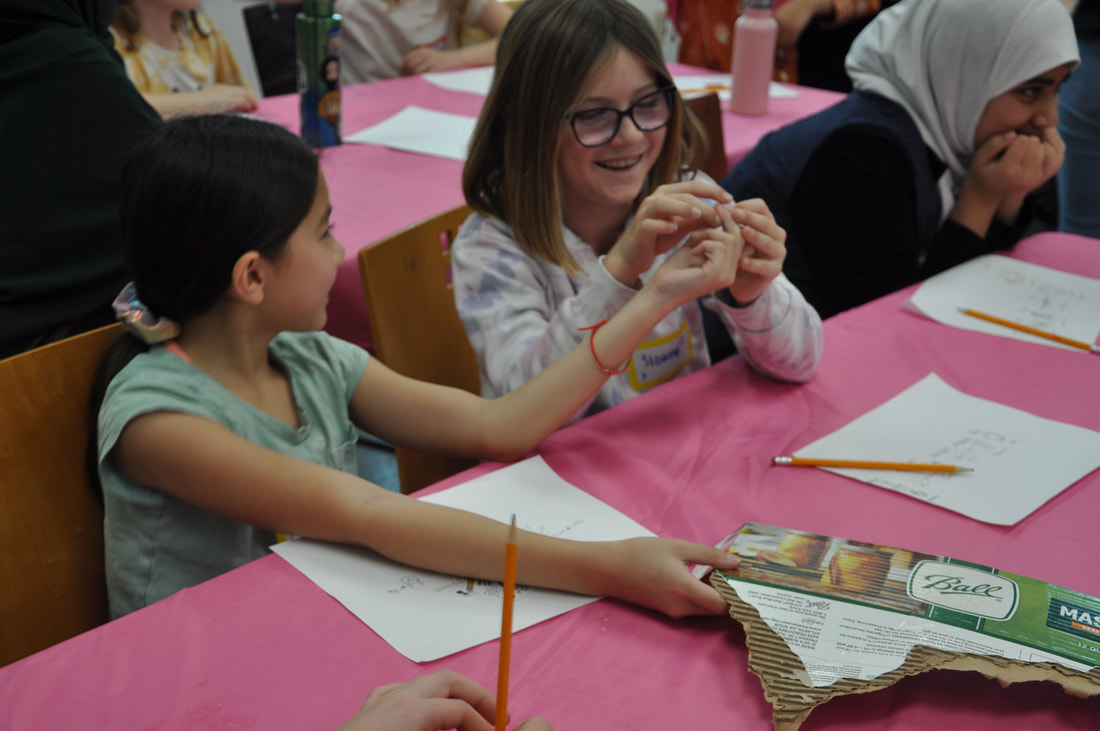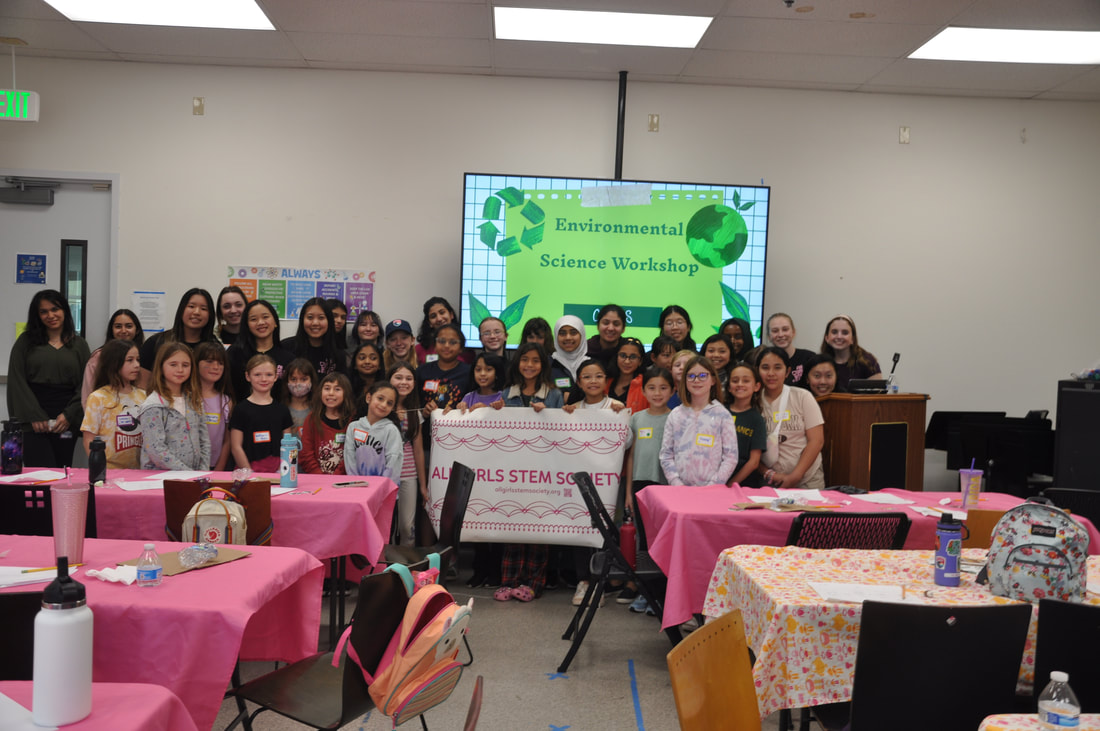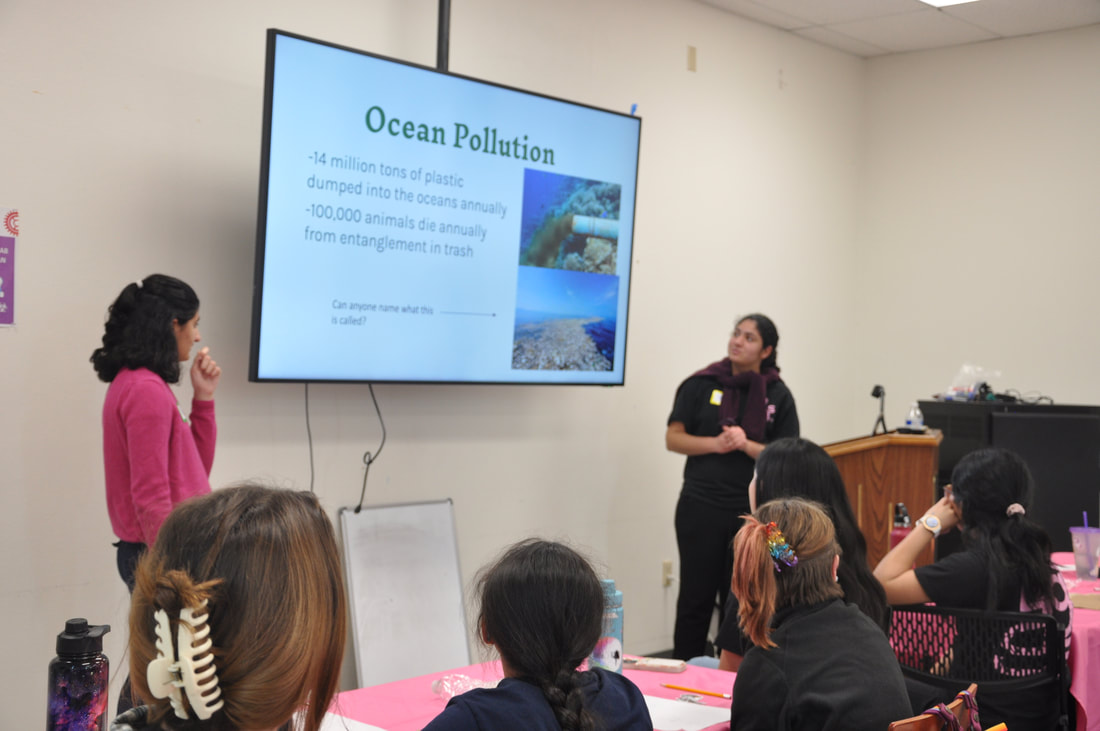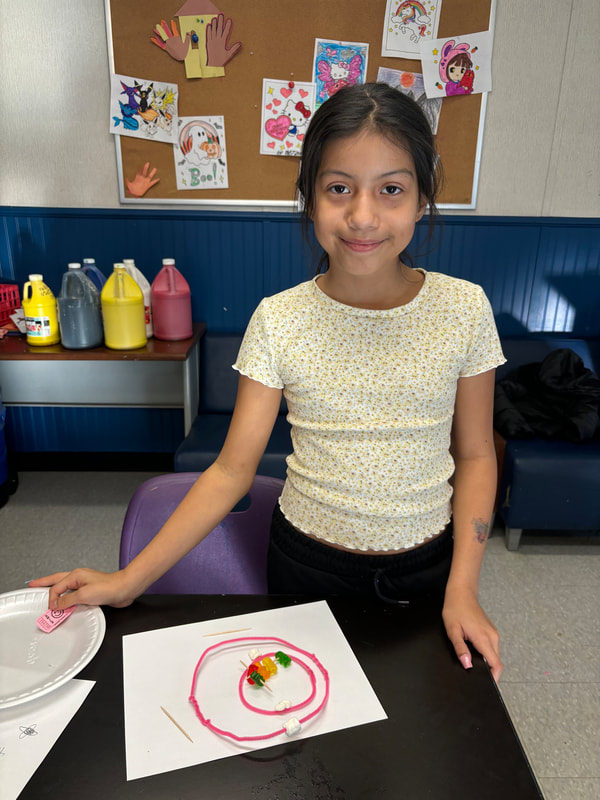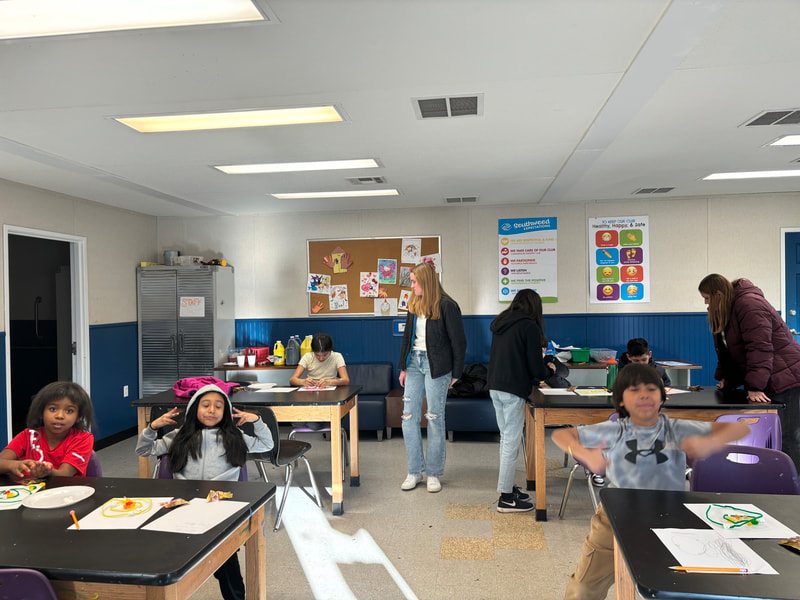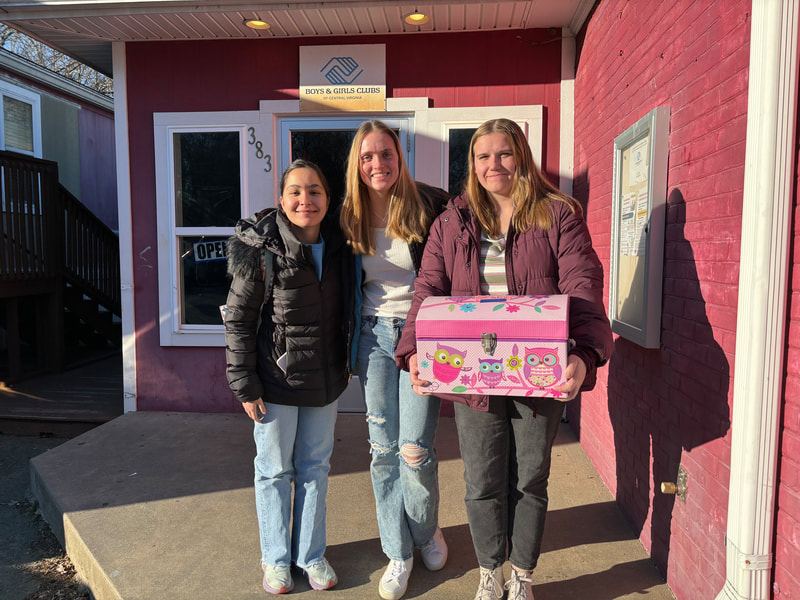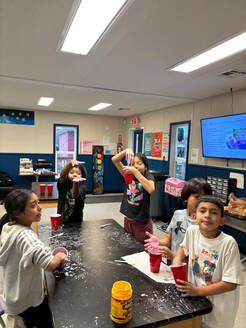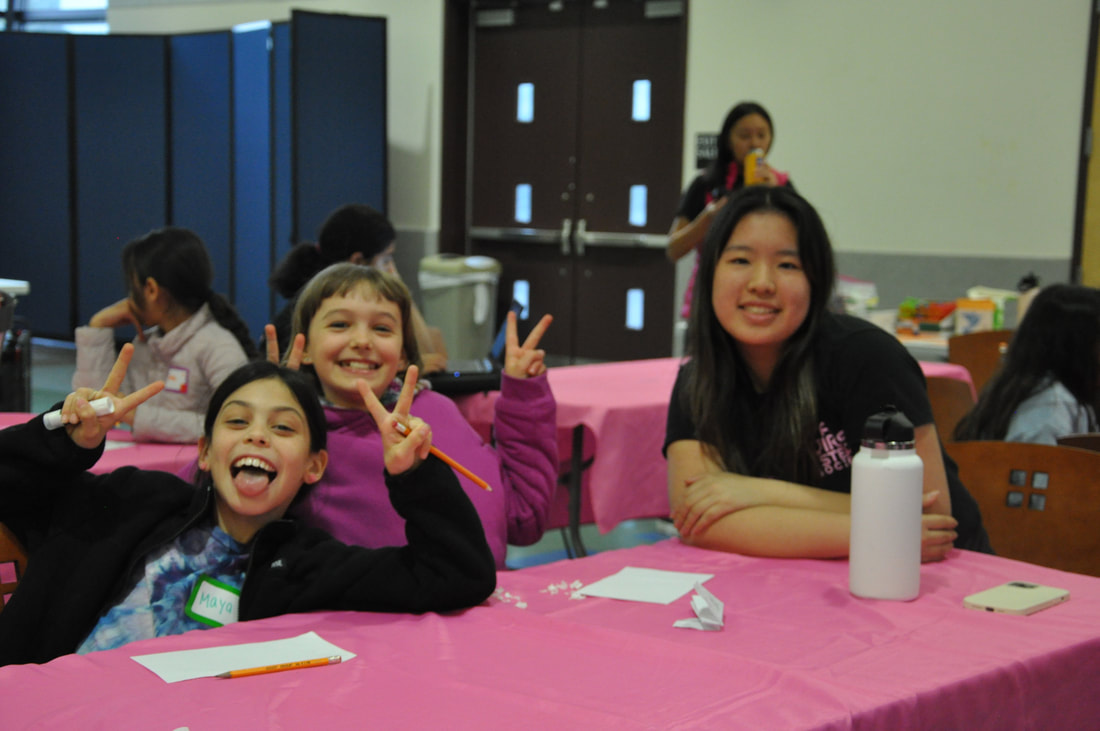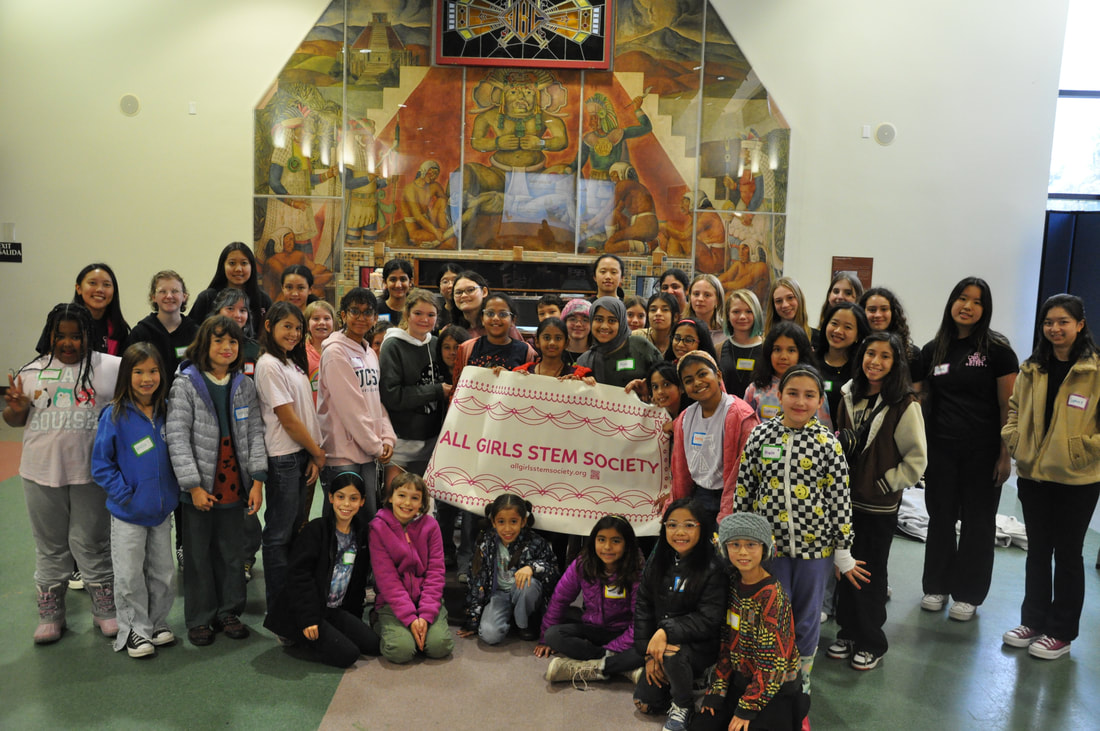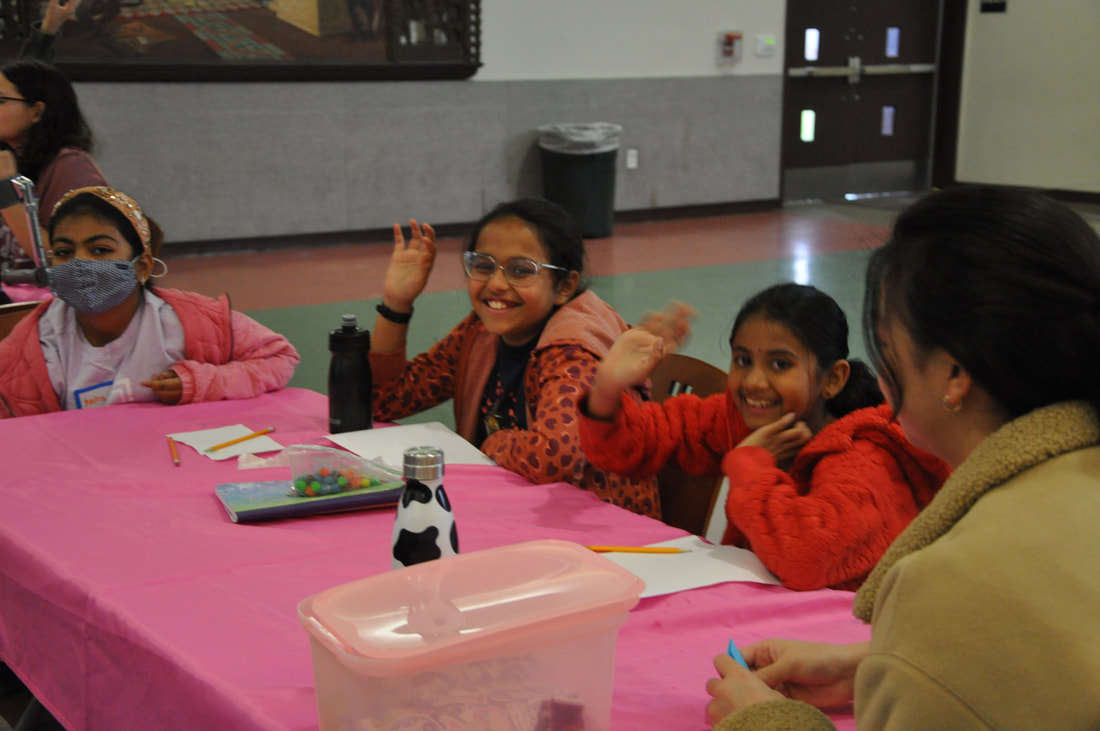|
On June 14th and 15th, we hosted our annual NASA Astro Camps® in collaboration with NASA and The Clueless #11212, a local FTC robotics team. At these camps, we had two special guest speakers: Ms. Michelle Beiser, Deputy Program Manager for NASA’s Rocket Propulsion Test Program, who talked about her role in designing and testing rockets for the Artemis missions, and Dr. Prabha Sumdaravadivel, Director of NASA’s Computer Engineering Research Laboratory, who described her research in artificial intelligence, on-device learning, and bio-inspired soft robotics, along with her development of cyber-physical systems. In addition to learning about NASA’s most recent projects and programs, participants created mission patches, categorized rocks like NASA scientists, and built their own mini-satellite. They also constructed their own aerodynamic rocket cars and built a functioning robotic arm out of cardboard! We hope to see you at our upcoming workshop in September!
0 Comments
On Saturday, May 18th, we hosted the famous All Girls Math Tournament at Logan Heights Library! During this annual AGSS tradition, the girls participated in a math competition, doing all sorts of problems individually and as groups, divided into 3-4, 5-6, and 7-8 age groups, all with different problem sets.
The girls started the competition by doing a Sprint Round, which was focused on simpler concepts that they could do in quick periods of time. Then, they moved onto a Target Round, with harder problems. After two successful rounds, they took a break for yummy cookies, bananas and water. They ended the competition with a Group Round, where they separated by grade levels and worked together to complete problems. The workshop ended with a celebratory award ceremony for all the different rounds, with lots of amazing prizes—from a stuffed pi symbol, to a jewelry store gift card, to math-themed shirts. Overall, it was an extremely successful All Girls Math Tournament, and all the girls were able to display their amazing problem-solving abilities. Be sure to look out for our next workshop on astrophysics, which will be on June 1st at Mission Valley Library. On April 16, 2024, AGSS volunteered at Marie Curie Elementary’s science night, where students at Marie Curie from grades TK to 2 participated in STEM-based stations with interactive hands-on activities. At the music vegetables station, our volunteers taught participants about electricity, conductivity and circuits with Makey-Makeys and Scratch programming, along with some carrots and celery. At the magic milk station, our volunteers taught participants about the polarity of molecules with food coloring and milk solutions. At the invisible messages station, our volunteers taught participants about acid-base chemistry by revealing secret messages with baking soda and grape juice.
Our participants had a lot of fun learning about science through these activities, and we were happy to help with Marie Curie’s event! On Saturday, April 6th, we hosted our Robotics Workshop at UCSD! During the workshop, the girls were able to code LEGO EV3 Mindstorm robots to complete a variety of different tasks like drawing and sensing colors. To start out the workshop, Serena and Audrey (the leaders) taught the girls about what robotics is and how it’s used in the real-world — for everything from vacuum cleaners to hospital tasks. Then Dr. Eguchi, a UCSD professor who helped organize the workshop, told the girls about different robotics opportunities they have at their disposal, as well as emphasized the importance of robots in today’s world.
Next, Serena and Audrey gave the girls an introduction to Mindstorms — the application they used during the workshop to code their robots. After the intro, the girls got started on coding. They problem-solved and worked in groups to get their robots to travel back and forth, turn, and move in different shapes like squares and circles. After completing the challenges, the workshop leaders gave a brief introduction to sensors (specifically touch and color ones), and then it was time for snack break. After filling up on some delicious cookies and bananas, it was time for everyone to get back to work! The girls worked with color sensors and coded their robots to stop at black tape, as well as make a square along black tape that the sensor was coded to not touch. Then, for the final activity, the girls combined their knowledge from previous challenges to get their robots to draw. They used legos and rubber bands to make their own pen holders, then got their robots to draw different shapes on poster boards—both old shapes they’d already coded for as well as new ones. After finishing their robot-made art, the girls posed with their creations and some even got to take them home. Overall, it was another successful and educational AGSS workshop. Be sure to look our for our next workshop, the annual All Girls Math Tournament, on May 18th from 1:45pm-5:30pm! On Saturday, March 16th, we hosted our python workshop in collaboration with Del Norte High School’s Girls in CS club at Mission Valley Library. To begin, we discussed computer science in the real world, including examples, our woman in STEM, Grace Hopper. Then, we moved on to programming itself, and how we give instructions to computers with different languages. Our first coding activity was a classic for any programmer - “hello, world”. Once the girls had written their first line of code, we delved more into the specifics of syntax, variables, data types, and more!
For our first activity, once the girls had learned about loops, they organized lines of code on slips of paper into a loop program. Then, after a quick break for snacks, they moved on to turtle, a graphical library that can draw using code. Once learning a few turtle commands, participants chose one of four drawings to create using turtle, including a flower, a balloon, a star, and a clover. Our final coding activity was sprite animation, using sample photos to create a simple running animation. One participant commented that she enjoyed programming because it was a “simpler way of talking to the computer.” We hope to see you at our next workshop on robotics! On Saturday, February 24, we hosted our Environmental Science workshop at City Heights Library! The girls learned all about the relationship between humans and the environment, including concepts such as predator/prey relationships and food chains. In our first activity, participants created their own food chains with energy sources, producers, consumers, and decomposers. Then, we discussed symbiosis and the different types of symbiotic relationships.
For the next part of the workshop, our focus shifted towards sustainability. After covering pollution and the damage it does, participants brainstormed methods of reducing, reusing, and recycling. Once they had learned what qualifies as recyclable, the girls took common trash items and decided which ones they thought were recyclable. After a quick break for snacks, we moved onto pollution, discussing the sources, the effects, and how we’ve experienced it in real life. Finally, the participants learned about biomes and different environments. Our last activity was a survival game to show how different adaptations help organisms survive in different environments. Dice rolls determined the traits of a moth for each participant, and then we went through different environmental scenarios such as temperature changes, predators, and more to see which combinations of traits survived the longest. Look out for our python workshop on March 16th! On Monday, February 26th, AGSS hosted a workshop about Data Science at the Boys’ and Girls’ Club at Southwood! Designed and hosted by our Technology Curriculum Head, Tsega Kidanu, we first covered the basics of data science, including why it is so important to analyze the world around us. We then went over the different types of data, such as qualitative and quantitative data, and the different types of graphs it can be organized into.
We then demonstrated how data can be collected by surveying students to learn about everyone’s favorite sports, and turned this information into a relevant graph together. After practicing this skill, we distributed assorted candies to the students, who sorted them by the type of candy, then by color, then by size. They recorded this data and as a class, we visualized it with a bar graph - now they were thinking like real data scientists! On Monday, February 19th, AGSS hosted a workshop about Atoms and Elements at the Boys’ and Girls’ club at Southwood! At this workshop, which was designed by our Science Curriculum Head Cynthia Jia and hosted by our president Selena Akay, we went over the parts of an atom. Students were also introduced to the periodic table, its significance, and how to navigate it. To practice, we did a quick activity on how to extract information about the elements using the periodic table terminology!
We built upon the knowledge of atoms that they gained earlier by introducing the concept of molecules. Our activity for the day was creating atoms! First, they drew the atomic structure of the element of their choosing on a piece of paper, and then they modeled their drawing using pipe cleaners for electron shells, gummy bears for protons and neutrons, and marshmallows for the electrons. I’m positive that we’ll be keeping an ion these future scientists’ accomplishments! On February 12th, UVA AGSS hosted a workshop on Non-Newtonian Fluids at the Boys and Girls Club of Southwood! Students learned about the different states and properties of matter. We then delved deep into the idea of a substance that could belong to more than one category of matter at the same time - non-newtonian fluids! We discussed real-world examples of this unique substance before moving onto our activity for the day.
The students were given supplies to make their very own non-newtonian fluid, oobleck. This fascinating substance is solid when compressed, but liquid when left alone. It’s totally unlike most materials seen in the world around us! Like real scientists, students made observations on what happened to the fluid as it was stirred or squished, and shared with the class. On Saturday, January 20th, we hosted our geometry workshop at Logan Heights Library, where 35 girls learned all about two and three-dimensional shapes. After discussing our example woman in STEM, Emmy Noether, and her accomplishments in abstract algebra, the participants learned about various properties of triangles and quadrilaterals. They also earned prizes for answering questions such as naming types of triangles. Then, the girls proved that the angles of triangles add up to 180 degrees by folding the corners of paper triangles into a straight line. Before moving on to three-dimensional shapes, the girls learned about how proofs work and how mathematicians discover them.
To begin our section on three-dimensional shapes, participants learned about types of prisms, pyramids, polyhedrons, and more! They then put this into action with paper nets, which showed how 3D shapes are made out of 2D shapes. After taking a quick break for snacks, we then moved on to examples of the math that the girls learned about in nature. Finally, the girls created modular origami and put 2D origami shapes together to make a variety of shapes including cubes and polyhedrons. One participant commented that “my favorite part was the origami because I liked making all the different shapes with paper.” Be sure to look out for our ecology workshop on February 17th! |
Archives
June 2024
|
All Girls STEM Society is a 501(c)(3) nonprofit organization.
